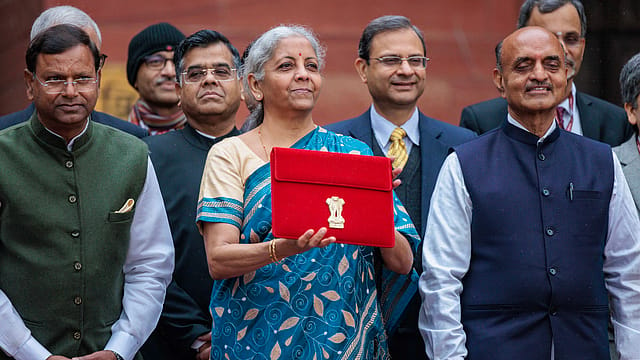Budget 2024: No change in income tax slabs this time
ADVERTISEMENT

In a possible disappointment to middle-class or salaried class, Finance Minister Nirmala Sitharaman's Interim Budget 2024 has not introduced any changes in the income tax slabs for the upcoming financial year 2024-25. Since the cut in the corporate income tax rate in September 2019, there has been a continuous demand to reduce personal income tax rates as well. However, the government has decided not to touch the income tax issue, except from withdrawing outstanding tax demand up to FY15 for amounts less than ₹10,000.
Making the Interim Budget 2024-25 announcements, the FM says in Parliament that in the last five years, the Centre's focus has been to improve tax-payer services. "The age-old jurisdiction-based assessment system was transformed with the introduction of Faceless Assessment and Appeal, thereby imparting greater efficiency, transparency and accountability."
The FM says the introduction of updated income tax returns, a new Form 26AS and prefilling of tax returns have made filing of tax returns simpler and easier. "Average processing time of returns has been reduced from 93 days in the year 2013-14 to a mere ten days this year, thereby making refunds faster," she adds.
The FM also says over the last 10 years, the direct tax collections have more than trebled and the return filers swelled to 2.4 times. "I would like to assure the taxpayers that their contributions have been used wisely for the development of the country and the welfare of its people."
She says the government has reduced and rationalised tax rates. Notably, under the new tax scheme, there is no tax liability for taxpayers with income up to ₹7 lakh. The FM says it increased from ₹2.2 lakh in the financial year 2013-14. "The threshold for presumptive taxation for retail businesses was increased from ₹2 crore to ₹3 crore. Similarly, the threshold for professionals eligible for presumptive taxation was increased from ₹50 lakh to ₹75 lakh. Also, the corporate tax rate was decreased from 30 per cent to 22% for existing domestic companies and to 15 per cent for certain new manufacturing companies."
The government in the last year's budget had extended the benefit of the standard deduction to the new tax regime. The FM had also provided relief to those with income up to ₹5 lakh, exempting them from paying any income tax in both old and new tax regimes. For middle-class individuals, the FM had reduced the number of slabs to five and increased the tax exemption limit to ₹3 lakh.
The government had also announced relief on the personal income tax front by reducing the highest surcharge rate from 37% to 25% in the new tax regime. In line with the increase in government salaries, the Centre had also increased the limit on leave encashment on the retirement of non-government salaried employees to ₹25 lakh.